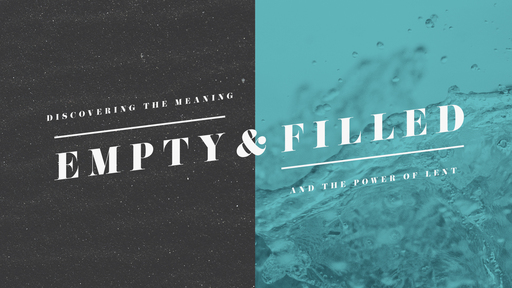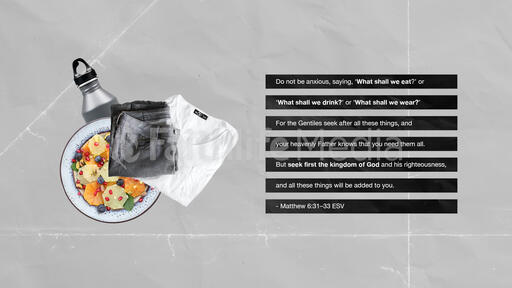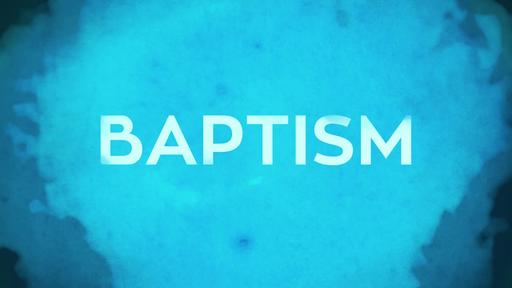Becoming Like Christ

Empty and Filled: Discovering the Meaning and Power of Lent • Sermon • Submitted • Presented • 14:42
0 ratings
· 38 viewsLent is a time of preparation that requires evaluating not just obvious sin but sinful attachment to good blessings. In rooting out our sins and detoxing from our comforts, God is preparing us for ministry to a broken world.
Files
Notes
Transcript
Intro: Last week we started our series Empty & Filled. And we began talking about the season of Lent, and the reason for the celebration of lent. We will be continuing this week in our discovery of the meaning and power of Lent, in a sermon entitled “becoming like Christ”
Last week we talked about the importance in recognizing our own sinful state if we are to truly understand and appreciate lent, and eventually Easter. This week we want to talk about Becoming Like Christ
So this week our key text is going to be from in Philippians chapter 3, and I want to get you to turn there.
Lent is a Time of Becoming Like Christ
Lent is a Time of Becoming Like Christ
But whatever gain I had, I counted as loss for the sake of Christ. Indeed, I count everything as loss because of the surpassing worth of knowing Christ Jesus my Lord. For his sake I have suffered the loss of all things and count them as rubbish, in order that I may gain Christ and be found in him, not having a righteousness of my own that comes from the law, but that which comes through faith in Christ, the righteousness from God that depends on faith— that I may know him and the power of his resurrection, and may share his sufferings, becoming like him in his death, that by any means possible I may attain the resurrection from the dead.
What does Paul mean when he says that he considers “everything a loss” (v. 8)? William Hendriksen explains that in other places, Paul considers these “profits” (his knowledge, credentials, and successes) to be blessings that can be used for the glory of God and the advancement of the gospel. “But when these same privileges begin to be viewed as a basis for self-satisfaction and self-glorification, when they are regarded as a ticket to heaven, they are changed into their opposites” . This is the danger of fasting or practicing spiritual disciplines—these good things can easily become self glorifying means of displaying our supposed self-righteousness.
Paul’s desire to “become like Christ” is one that is often repeated in Christian circles. He wants to share in Christ’s sufferings and his resurrection.
Now this may feel like an odd sermon for Lent and to talk about sharing in the sufferings of Christ.
However, this idea is integral to the historic observance of Lent. Typically during Lent you will hear people talk about giving something up, and depending on the person that thing varies, but what may have escaped your notice is that the length of Lent and the fast has historical significance: the forty days of fasting and prayer are taken from Christ’s forty days in the desert.
Mark’s Gospel tells the story of this portion of Jesus’s life succinctly in 1:9–15
In those days Jesus came from Nazareth of Galilee and was baptized by John in the Jordan. And when he came up out of the water, immediately he saw the heavens being torn open and the Spirit descending on him like a dove. And a voice came from heaven, “You are my beloved Son; with you I am well pleased.”
The Spirit immediately drove him out into the wilderness. And he was in the wilderness forty days, being tempted by Satan. And he was with the wild animals, and the angels were ministering to him.
Now after John was arrested, Jesus came into Galilee, proclaiming the gospel of God, and saying, “The time is fulfilled, and the kingdom of God is at hand; repent and believe in the gospel.”
Notice how quickly it moves from his baptism to his fasting and temptation in the desert, and finally to the beginning of his public ministry. This tells us something significant about the season of Lent
Lent is a Time of Preparation
Lent is a Time of Preparation
Lent is a time for preparation... even for Jesus, it was a time of preparation. For the sinless Jesus, it was a time of overcoming temptation, but for the rest of us, it’s often a time of rooting out the sin that has a hold on our hearts and lives. Before embarking on the work of public ministry must come ministry to oneself.
Matt 7 talks about the dangers of looking around at others without taking the time to examine ourselves.
Why do you see the speck that is in your brother’s eye, but do not notice the log that is in your own eye? Or how can you say to your brother, ‘Let me take the speck out of your eye,’ when there is the log in your own eye? You hypocrite, first take the log out of your own eye, and then you will see clearly to take the speck out of your brother’s eye.
This time of preparation might be appropriately called a “detox.” In her book Comfort Detox, Erin Straza outlines how to take a diagnostic of the comforts that may be true blessings in your life but have become “addictions.” Straza argues that complacency surrounding the things we are drawn to for comfort is the wrong attitude—we need to take careful notice of the things that comfort us and the way they may draw us away from our ultimate Comforter.
Just as Paul describes his own blessings as “garbage,” (v. 8) the blessings of food, relationships, or material treasures can be used and enjoyed appropriately, but they can also become substitutes for our greatest comfort,
Indeed, I count everything as loss because of the surpassing worth of knowing Christ Jesus my Lord. For his sake I have suffered the loss of all things and count them as rubbish, in order that I may gain Christ
“the surpassing worth of knowing Christ Jesus my Lord” (v. 8).
Lent is a Time to be Emptied
Lent is a Time to be Emptied
Lent was originally observed by those who were preparing to be baptized. For Christians living in times or places where a public declaration of their faith was dangerous or costly, baptism held much more social significance than it might have in many of our cultures today. Preparation for both the baptism itself and the consequences that it may cost the disciple would have been incredibly important.
Just as Jesus was tempted and prepared for public ministry, the tradition of Lenten observance is rooted in emptying believers of material or earthly attachments in order that they may be filled with spiritual and eternal comfort and power.
One of the most commonly asked job interview questions goes something like this: “What is your greatest weakness?” Most people try and use it as an opportunity to showcase another strength. Look up interview tips on the internet and you’ll be bombarded with examples and advice about how to turn your greatest weakness into a strength. Things like: “I’m a perfectionist!” or “I work too hard.” But what if the opposite is more often true: that your greatest strengths are often your greatest weaknesses? That’s what Paul was discovering.
So many of the things that we think of as being wonderful things, having money, power, intelligence. Paul lists out these things in chapter 3 just prior to the section that we read previously...
For we are the circumcision, who worship by the Spirit of God and glory in Christ Jesus and put no confidence in the flesh— though I myself have reason for confidence in the flesh also. If anyone else thinks he has reason for confidence in the flesh, I have more: circumcised on the eighth day, of the people of Israel, of the tribe of Benjamin, a Hebrew of Hebrews; as to the law, a Pharisee; as to zeal, a persecutor of the church; as to righteousness under the law, blameless.
For a jew at that time this was a list to be proud of!
However Paul recounts this list and follows up with what we read previously in verse 7 and 8
But whatever gain I had, I counted as loss for the sake of Christ. Indeed, I count everything as loss because of the surpassing worth of knowing Christ Jesus my Lord. For his sake I have suffered the loss of all things and count them as rubbish, in order that I may gain Christ
The very traits that had given him religious and social prominence as a Pharisee were actually obstacles to the gospel. He calls them rubbish because he recognizes that in obtaining these worldly accolades and comforts we can remove ourselves from dependence on and recognition of God.
In a season of Lent, our redirection of desires is intended to remove such obstacles. What blessings or strengths are we relying on to comfort us or give us success?
Some of you have heard my testimony around my current job.......
See I had to be brought to a place to understand and rely on God above all else. Until that time I was still relying on myself, on my paycheck, my skills, my education, my ability…My, My, Me, Me, I, I.
When we are emptied of the things we rely on for our self-righteousness, success, or the things we run to for comfort, we can be filled by what it says in verse 9
and be found in him, not having a righteousness of my own that comes from the law, but that which comes through faith in Christ, the righteousness from God that depends on faith—
“the righteousness that comes from God and is by faith” (v. 9). Knowing Christ and identifying with him in his suffering requires that we sacrifice smaller things for greater things.
In The Weight of Glory, C. S. Lewis notes that “We are half-hearted creatures, fooling about with drink and sex and ambition when infinite joy is offered us, like an ignorant child who wants to go on making mud pies in a slum because he cannot imagine what is meant by the offer of a holiday at the sea” Lent is a time of preparation in which our desires are redirected away from the mud pies that we are contented with and toward the future that God has for us.
Altar Call and Pray
ADVERTISEMENT
Related Media
See moreRelated Sermons
See more

Cesar Cruz • 50 views


Cesar Cruz • 38 views



